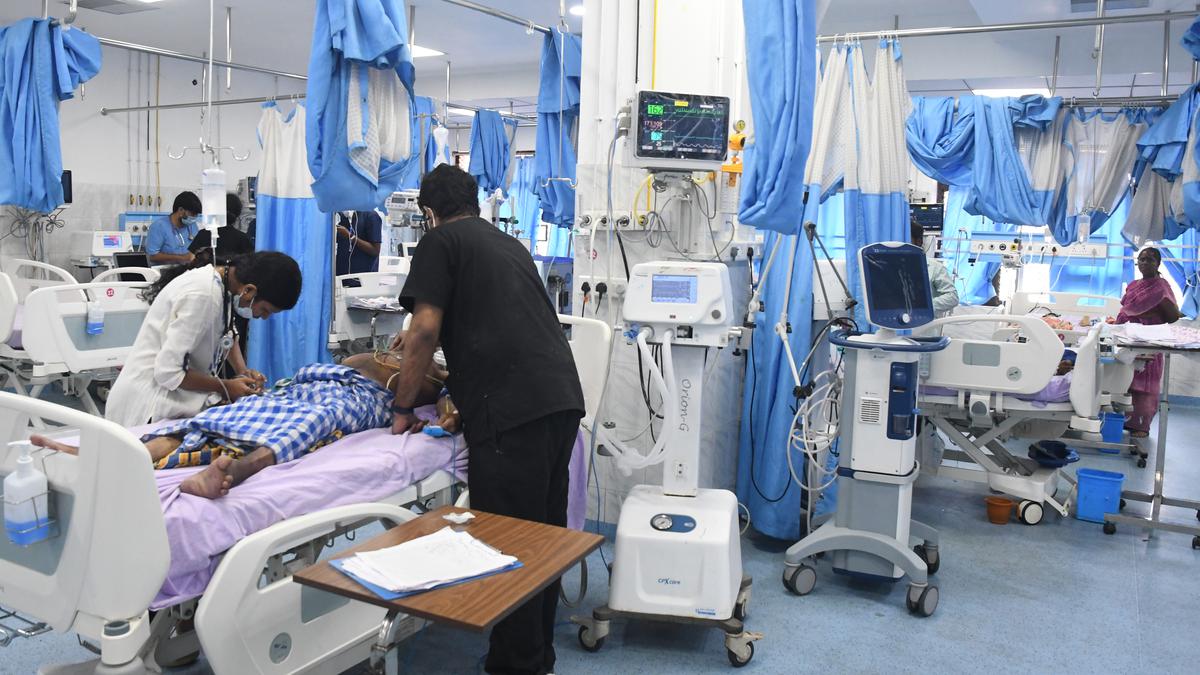People watch the live telecast of the interim budget 2024 by Union Finance Minister Nirmala Sitharaman, at a showroom in Gurugram, on February 1, 2024.
| Photo Credit: ANI
One of the announcements of Finance Minister Nirmala Sitharaman, while she presented the Interim Budget 2024 on February 1, that stood out was the “Anusandhan’‘ scheme, which promises to spur innovation and research in the “tech start-up” and Micro, Small and Medium Enterprise (MSME) landscape.
The Interim Budget proposes setting up of a ₹1 lakh crore corpus to fund research, with interest-free loans for 50 years. The fund would offer long-term financing to encourage research and innovation in sunrise domains of technology. Ms. Sitharaman also said the Centre plans to roll out another scheme to spur “deep-tech” research in the defence sector.
Industry captains were of the opinion that the ₹1 lakh crore investment, with specific focus on advanced technology and emphasis on innovation and technological progress, was a strategic move by the government.
According to B.V. Naidu, venture capitalist and Chairman of Karnataka Digital Economy Mission, the focus on “deep-tech is a great move” that will enhance India’s position from “a service-focused economy to an intellectual property-driven product destination”. He said the country is capable of catching up with leading global players in technology such as Israel, the U.S., EU, China, Korea, and Japan.
Avinash Vashistha, executive chairman, Tholons, a technology, innovation and investment firm, said the fund proposal indicated the government’s keenness to help a large number of start-ups and entrepreneurs “take advantage of deep-tech, Generative AI, and other emerging technologies”.
“In time, this will help in further growth explosion in IT and business process management [BPO] sectors in the country,’‘ observed Mr. Vashistha, also former chairman and Managing Director of Accenture India.
Lieutenant-General A.K. Bhatt, Director-General, Indian Space Association, said the government’s proposal to form a ₹1 lakh crore corpus would also benefit hundreds of space tech start-ups in the country. “This fund will certainly offer them support to innovate and conduct further research across various emerging domains of space technology,’‘ he emphasised.
“The fund will help small companies to reduce their dependence on natural resources or Rare-Earth minerals with the help of technological innovation,” stated Bhakta Keshavachar, founder and CEO of Chara Technologies, which helps industries reduce carbon emissions.
The proposed deep-tech research scheme for the defence sector “holds significance for DefSpace start-ups, due to the integral relationship between space and defence industries”, according to industry players.
On the talent front, the Finance Minister said the Skill India Mission had trained 1.4 crore youth so far, upskilled and reskilled another 54 lakh youngsters and established 3,000 new ITIs in the country.
While the Interim Budget seems to have made India’s technology industry happy, stakeholders believe a lot more has to be accomplished on the ground to take technology to the rural masses.













